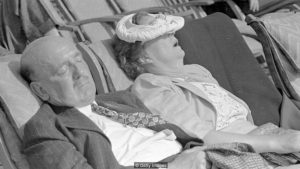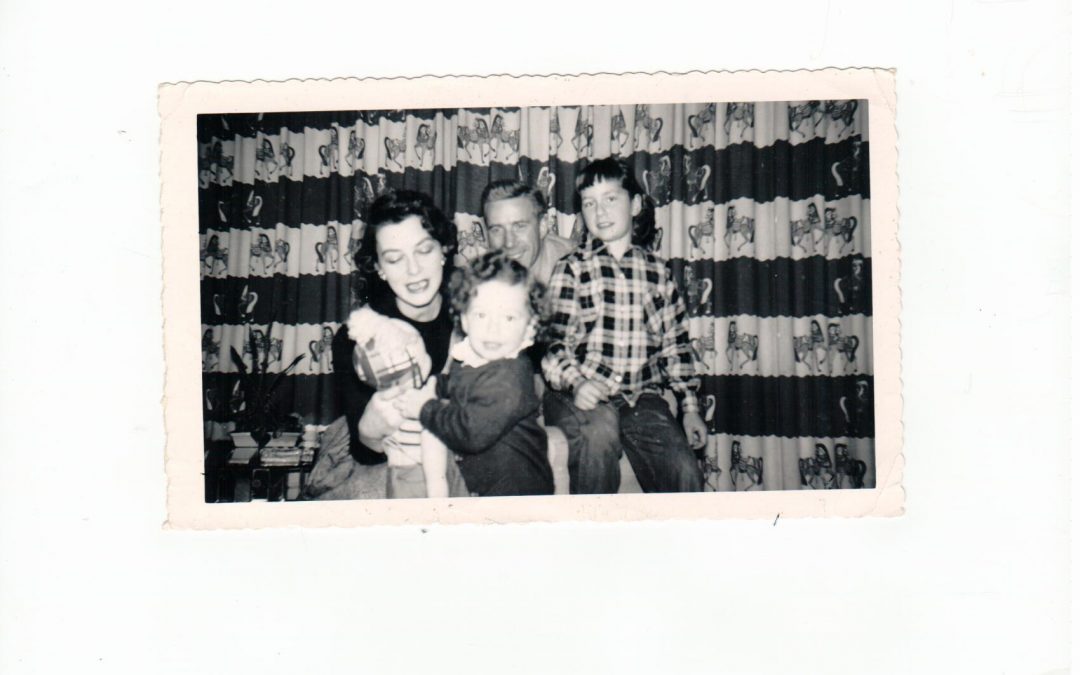
by Mindy Fried | Jun 10, 2016 | aging, connections with people, engaged aging, family, feminism, gender, health care, House Un-American Activities Committee, making choices, resiliency, theatre, Uncategorized, work and family balance
In this interview, Gayle Sulik, Founder of the Breast Cancer Consortium and Co-Founder of Feminist Reflections, talks with Mindy about her new book, Caring for Red: A Daughter’s Memoir (Vanderbilt University Press, forthcoming, Summer, 2016).
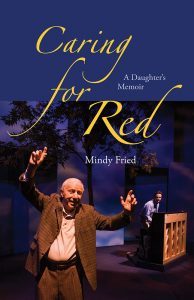 GAYLE: Mindy Fried, your new book Caring for Red tells a story of you and your sister taking care of your 97-old father in the last year of his life in an assisted living facility. Before we talk about your experience caring for your dad, Manny, tell me a little about him. Who was this colorful character? After all, he earned the nickname “Red.” Sounds fiery to me!
GAYLE: Mindy Fried, your new book Caring for Red tells a story of you and your sister taking care of your 97-old father in the last year of his life in an assisted living facility. Before we talk about your experience caring for your dad, Manny, tell me a little about him. Who was this colorful character? After all, he earned the nickname “Red.” Sounds fiery to me!
MINDY: My father was a person with many lives. As a young man, he was a labor organizer for the United Electrical Workers union where he organized factory workers. That was when industrial labor was still predominantly based in the US, and not in third world countries where labor is cheaper. At some point, he joined the Communist Party. I’m not sure how active he was or for how long, but certainly at that time, being considered a “Communist” was tantamount to being a terrorist in our current political climate. In1954, when I was around 4 years old, he was subpoenaed to testify in front of the House Un-American Activities Committee (HUAC), a very traumatic experience for him, and for my whole family. He was “blacklisted”, meaning that when he applied for jobs, he was turned away. Eventually, he was hired by a Canadian company where he sold life insurance for around 15 years. That’s the kind of work he did through much of my childhood. But he was also writing plays based on his experience as a labor organizer, and he returned to the theatre as an actor, something he had done years before. When I was a teenager in the 1960s, he was subpoenaed by HUAC again. That was tough, but times had changed quite a bit and the ramifications weren’t quite as dire as they were the first time around. He ended up going back to school when he was in his 50s. Really impressive, since he had only one year of college under his belt. He went straight from finishing an undergraduate degree to working on a Ph.D. in English. His final career was as an English professor at SUNY Buffalo State College. You might say that nothing kept this guy down. He was a great role model in that sense.
GAYLE: How did your family survive the impact of the McCarthy period?
MINDY: I grew up with two people who were angry with each other often, but it was quiet anger. That was hard. I was lucky to have a best friend who moved in down the street from me when I was 5 years old, and her family basically adopted me. She liked my house because it was quiet, and I liked hers because it was lively and warm and loving. She became my “non-bio” sister, as we say; we’re still close today. Her parents became surrogate parents, and I am ever-grateful for that. They were just very attentive; my parents were often distracted. It was great to have another family a few doors down the street. That was one way I coped. But as a family, we also believed that my father made the right choices, in how he challenged HUAC, and continued to stand up for his beliefs. Having a sense of doing the right thing goes a long way.
GAYLE: Another name associated with Manny Fried, is “Morrie.” Six years before your father died, he played the character MORRIE in a play called Tuesdays with Morrie. As the story goes, a University graduate visits his former mentor, a sociologist who is slowly dying of a progressive disease. You write that your father inhabited that role fully, and that it helped to bring you closer together. Tell me why.
Well first of all, it was a big deal to play Morrie, not only because it was a great opportunity for my father, but also because he got to perform at the Studio Arena Theater, which had blacklisted him for many years. For me, the other exciting thing about him getting this role was that Morrie was a sociologist in my own department at Brandeis University. I knew Morrie, and the moment that my dad got the part, I saw it as an opportunity for the two of us to connect around his preparation and performance. I introduced him to Gordie Fellman, one of Morrie’s closest friends and colleagues from Brandeis. And I introduced him to a couple of Buddhists and sociologists who called themselves “Monday’s with Morrie”, as opposed to Tuesdays with Morrie (upon which the book and play were based). We also watched the Frontline TV series that Ted Koppel produced about Morrie, where Koppel interviewed him over the period of time as he was dying of ALS. When my dad came to visit me, he would have these meetings, and he would run his lines with me, and he would practice a grapevine dance from the play in my narrow hallway. It was just this really sweet thing that we connected around, and then obviously I always went to see him when he acted, so it was great to see him in the play, and he really did a beautiful job. People are always kind of amazed when they see old people function in any way, but seeing him excel at inhabiting this character – I think it was a really powerful experience for the audience and he pulled it off; he did a great job.
GAYLE: In your book, you describe a father who was loving – someone you felt deeply close with – but also a man who was full of himself. Did you feel resentment about taking care of him in this last year of his life?
MINDY: Well I think that this a really important question because as adult children, many of us have mixed feelings about our parents. The answer is “no”, I didn’t resent him. But it took me many years to understand him, to find equal footing with him, to find my voice with him, since he was a forceful speaker, sometimes controlling, and sometimes discounting of opinions that differed from his. He once told me that if I wasn’t sure about something, just guess, and that 99% of the time I’d be right. I was in my 30s when he gave me this advice, and by then I had his “number” and realized that this was sort of ridiculous. But he actually believed he was right most of the time! That said, I had deep respect for him and for his values and choices in life. He centered my world, for many years. In “exchange theory”, as it applies to families and relationships, the notion is that parents care for their children in one period of time, and later in life, when elder parents need support, children care for their parents. When it came time to care for my father, I did it with all my heart.
GAYLE: How did the father-daughter relationship change as Manny aged?
MINDY: My father and I were very close. Like most people, he was a flawed human being. He made serious choices in his life that impacted our family. But I had a deep respect for him, and we had a lot in common politically. For me, being part of the Women’s Movement in the 70s helped me better understand that despite being a good guy who was committed to social justice, he was pretty “old school”. I got frustrated with what a poor listener he was, and how I often had to fight for “air time” in conversations with him. But I did learn how to argue and debate because of him. I believe he felt I could be anyone or anything I wanted to be. And while he wasn’t comfortable “having or expressing feelings”, he was emotionally raw much of his life. That was one effect of McCarthyism on his life, and I understood that about him. Over the years, I understood enough of who he was to accept his shortcomings and his vulnerabilities and to just kind of let it go and say, “ok, here’s this person in the last bit of his life,” and to really be as fully present for him without losing myself.
GAYLE: You chronicle in your book many attempts, successful and unsuccessful, to find a place for your father to live that would meet his growing care needs AND offer the kind of life that fulfilled him. This was not easy, and sometimes your father was less than helpful. Tell me what worked, and what didn’t?
MINDY: I think one thing that worked was that I put myself in his shoes. For example, when we went and visited this super groovy retirement community that was connected to a college and he said to me, “there is absolutely no way I am going to move in there”. I imagined myself living with people that we met with, and I thought “I couldn’t do that either, this would be kind of horrible”. Not that they were bad people; it just felt foreign. These weren’t people he would choose to be friends with. I think that probably the most important thing as somebody gets older is to respect where they’re coming from. And I think it’s important to start thinking about these issues early on because you know, if you are trying to make a decision when it’s dire, the whole process of decision making is much more rife with emotion. I believe that talking about these things before you are in a crisis really makes a huge difference. And that helped us a lot.
GAYLE: Your father lived in Assisted Living for the final year of his life. Am I correct?
MINDY: Even though the book uses a one-year time frame, it was actually a year and a half that my sister and I cared for our father. It worked really well, until it didn’t. We learned what assisted living was able to provide for him as well as its limitations. Ultimately, in the last few months, he needed round the clock care. But he was able to live and die in his small apartment in assisted living. As an ethnography, Caring for Red provides a real sense of life in assisted living, the norms and values that drive human interaction, the hierarchy of staff, and the structures that define the experience within this institutional form of care that aims to provide a home-like environment.
GAYLE: Can you describe what Assisted Living is?
MINDY: Well, people think of it as kind of a hybrid health and home service, but in fact it’s really just more home than health oriented. It’s a place to live; there are regular meals; there often are activities; and staff provide services to residents – up to a point. Some assisted living facilities have medical staff; others don’t. We chose a place that had some nursing care, including medical people who delivered medications, and there was actually a doctor, a geriatrician, who came by once a week. But we had to pay for medical care because it was beyond the basic services offered. We ended up supplementing even more services in order to avoid having to send him to a nursing home. But that’s a longer story…
GAYLE: You were also a long-distance caregiver. How did you manage your father’s care from afar?
MINDY: I was lucky that I had a sister to do this with, so between the two of us we shared the caregiving work. We visited every weekend; we talked on the phone all the time; and we were on the phone constantly with caregivers, as well as his friends to help arrange his social life.
GAYLE: What do you hope for your book? How do you hope people will be affected by reading it?
MINDY: I guess if nothing else, I’d like it to contribute to a more open conversation about the trials and tribulations of caregiving work. While Caring for Red includes references to scholarly work on caregiving, I will be lucky if people feel more of a heart connection to the issues, particularly those people who are caring for an elder parent. We all have a range of feelings towards the people who cared for us when we were young. It’s important to recognize that there are a lot of people who love their parents; there are some people who hate their parents; and there are some people who have mixed feelings about their parents. Taking care of them in those final throes of life is jarring; AND it’s an opportunity to reconcile unresolved feelings; it’s an opportunity to treat elder parents with dignity and to make that last piece of life worth living. It’s also something that we’re all going to face at some point so I think that how we care for our parents is also a role model for how the younger people around us can – and hopefully will – care for us.
There’s no ultimate how-to book on caring for our parents. We all learn by what we see around us. So I’d like a dialogue to be stimulated about these issues. Because it’s very hard work – unpaid caregiving labor – and people don’t talk about this shit because it’s like, ‘oh it’s too depressing’, but hey, it’s life! We’re all going to die, you know, and somebody’s hopefully going to take care of us, so let’s think about how we want that to look within families and within society.
I also hope that academics will use this book in classes on aging, on death and dying, and on anything related to the life course. Moreover, Caring for Red is an ethnography, “set” in assisted living, so I hope it will be used in methods classes. And finally, for those who take interest in the history of facism and particularly, in the McCarthy era, the book presents quite a story, which I believe we must not lose.
GAYLE: Thank you, Mindy Fried. The deeply moving and insightful memoir – “Caring for Red”- is available for pre-order on Amazon.com.
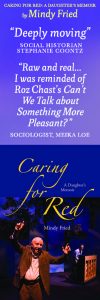
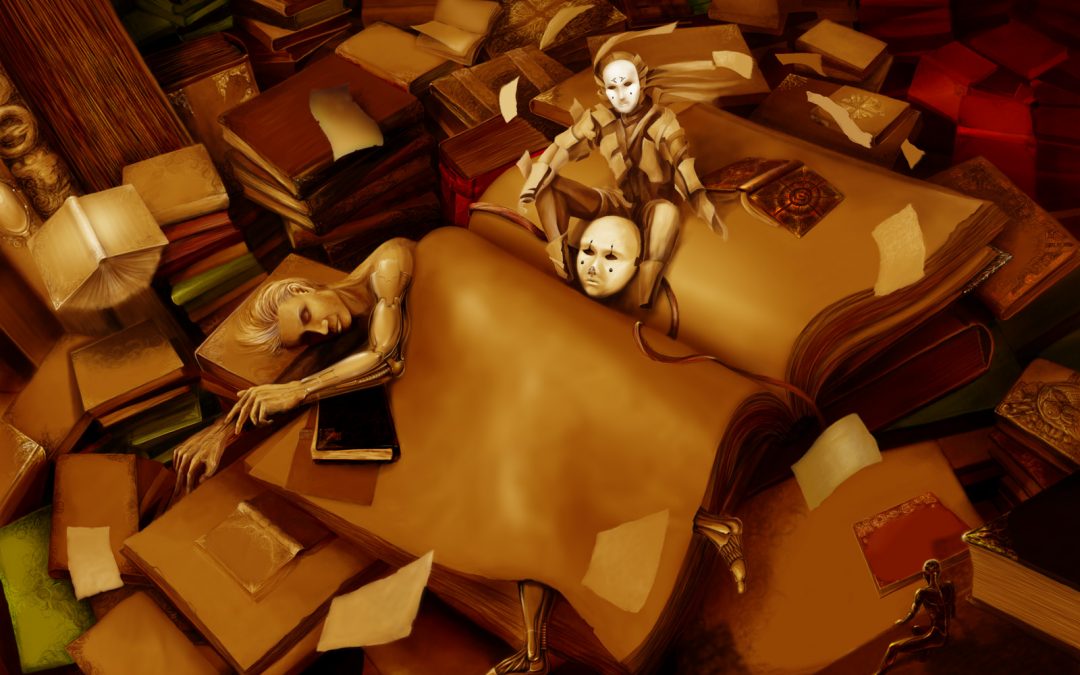
by Mindy Fried | Jul 4, 2015 | aging, connections with people, depression, engaged aging, exhaustion, gender, health, insomnia, resiliency, sleep, women and health, work culture
The men in my family were easy sleepers. It wasn’t uncommon to see my father and his six brothers lie down on the floor after a big meal and just nod out. Of course, that left my aunts to clean up, after they had also cooked the meal, and I bet they could have used a nap too. At the time, I figured that taking a post-meal snooze was the “way things were” for the men in the family. But gradually, as I developed a feminist consciousness, I resented these lazy guys. As my age gradually crept up to where theirs were back then, I have begun to appreciate their supreme capacity to sleep just about anywhere, anytime. My father was also one of those people who could nod out for five minutes – taking a so-called “power nap” – only to emerge refreshed and able to fully re-enter the conversation when he awoke.
Later, when he was in his 90s, he began to experience serious insomnia, lying awake for hours and hours throughout the night, going crazy with boredom and frustration. While I sympathized with his dilemma at the time, it wasn’t until I experienced my own sustained insomnia – after a back injury – that I understood how horrible it is to not be able to sleep night after night. I discovered that sleep deprivation steals one’s energy, one’s optimism, and sometimes even one’s sanity. With increasing lack of sleep, the exhaustion compounds and the world becomes slightly, if not majorly, off-kilter.

Insomnia is a lot of things, which includes having a hard time getting to sleep, as well as waking up early and having a difficult time getting back to sleep. Not surprisingly, it isn’t a contemporary phenomenon. No, we in the so-called modern world didn’t invent it. Insomnia goes way, way back. The term “insomnia” first appeared in 1623, and means “want of sleep”. One of the biggest causes of insomnia, stress, is something that people have been struggling with for eons. It’s just the nature of stress that looks slightly different these days, compared to a few centuries ago. But if you think about it, there are a lot of similarities.
We’re stressed because we work hard or we don’t have enough work. We’re stressed because we live in a violent world that is unpredictable. We’re stressed if we experience social isolation or prejudice. We’re stressed when we don’t have enough to eat, and don’t know where the next meal is coming from. We’re stressed because our jobs are too demanding or not challenging enough. We’re stressed because we worry about paying our bills. We’re stressed because we don’t feel loved enough, or because we have tension with our partners or our friends. One might call these universal problems, and these stressers will vary based on your economic situation as well as your race, gender and sexual identity. And maybe a few centuries ago, we might have also worried about predators or major diseases that wiped out entire swaths of people. All of these stressors can lead to loss of sleep.

A lot of famous people are recorded as having suffered from insomnia. Sir Isaac Newton suffered from depression and had difficulty sleeping. Winston Churchill had two beds because if he couldn’t sleep in one, he would try the other. Thomas Edison, like my father, was a cat-napper, because he couldn’t sleep at night. Some insomniacs turned to drugs. Marcel Proust and Marilyn Monroe took barbiturates to help them sleep. English writer, Evelyn Waugh, took bromides to induce sleep. As we know, Michael Jackson died because of a lethal cocktail of medications to help him sleep, including propofal, used for sedation before surgeries, lorazepam, used for anxiety, and a host of other meds, including midazolam, diazepam, lidocaine and ephedrine. He was obviously so desperate to sleep that he was willing to try them all.

Author and columnist Arianna Huffington calls insomnia a “feminist issue”, and has written columns in Huffington Post lamenting her lack of sleep from jet lag. Another Huff Post columnist, Dora Levy Mossanen, calls insomnia a “smart, devious virus that mutates and changes form every season like the flu virus. Except that this tricky bugger is tuned to our circadian rhythm and is able to change and disguise itself at whim to confuse the heck out of us”. Mossanen does all the “right things”: She doesn’t drink caffeine, goes to bed at a decent hour, drinks hot milk before bedtime, takes warm baths, reads non-stimulating books, listens to guided meditation on her i-pod, and imagines serene seashores. And yet she says, “I toss and turn at the beginning of the night, counting backwards and forwards so many times that if my mind was prone to mathematics, I’d have solved all the mathematical problems of the world by now”.
For the most part, my insomnia has cleared, but every so often it rears its ugly head. While in the midst of a minor insomniac “relapse”, I asked my friends and colleagues for their insomnia narratives. I wanted to know how long their insomnia lasted, why they thought they were struggling with sleep; what they did when they were awake; how it affected them the next day. I learned that the main causes of insomnia are:
* Anxiety, the everyday kind like preparing to teach a class, and larger anxieties, like worrying about keeping a job;
* Depression, which impedes relaxation necessary to fall and stay asleep;
* Medications, because some meds like decongestants and pain meds keep us awake. Antihistamines might initially make us groggy, but they can cause excess urination which gets us up a lot during the night;
* Alcohol, which may make you more relaxed, but prevents deeper stages of sleep and can cause you to wake up in the middle of the night;
* Chronic pain, which is distracting and worrisome and can lead to anxiety, which prevents sleep;
* Medical conditions, like arthritis, cancer, heart disease and Parkinson’s disease, which are linked with insomnia;
* Poor sleep habits, like weird sleep schedules, or an uncomfortable sleep environment;
* “Learned insomnia” – which is worrying too much about not being able to sleep, which makes it hard to get to sleep; and
* Eating too much before sleeping or eating the wrong snack, which can give you heartburn and make it uncomfortable to fall sleep.
In response to my call for insomnia stories, only women replied. I know that isn’t because men don’t experience insomnia; but perhaps men don’t want to reveal their sleeping problems publicly, even though I promised confidentiality. (It’s not too late, for my male readers!)
One woman said, “You do realize you’ve opened the floodgates, yes? Amazing topic. Of course, I’m too sleep-deprived and deep into end-of-semester madness to respond right now! Maybe during my next bout of insomnia (perhaps tonite). ;-)”
Here are a few responses from other insomniacs:
One woman says, “Funny you should ask, as I am suffering from insomnia just now, maybe a week long bout this time, but by far not the longest ever. I wake up about 4am and cannot fall back asleep if my life depended on it. Not sure why I have such a hard time staying asleep, maybe it’s hormonal (menopause) or maybe it’s all the craziness at the office (new department chair, no office support as the old secretary retired, research lagging, …). Often I am not the only one awake, as my spouse is also a stressed-out insomniac. I typically try to fall back asleep, but if it doesn’t happen, I get up and read in the living room until I feel exhausted from being up at 4 am. What sometimes works is counting backwards from 100 in another language. Needless to say, the next day I feel a bit out of it, but nothing like the “zombieness” I did when my child used to wake me up. I am not desperate yet, but may try to find my melatonin from the previous bout to get me back on track. Sometimes it works, sometimes it doesn’t”.
Another woman says, “My insomnia stories are boring. I get up and clean the house, read, catch up and/or get ahead on my work. That makes me feel like I am not wasting my time trying to fall asleep. Usually that day I am racing, energetic and feel good about all I have accomplished. By that night I am crashing and I pay the next day in bodily aches/pain. Not very exciting…”
Another says, “I have had quite a few episodes of insomnia. There were times when I would go days or even a week without adequate sleep. I would either fall asleep and then wake up in the middle of the night and not be able to go back to bed, or I would just simply stare at the ceiling until I finally fell asleep, only to wake up about every half an hour for the rest of the night. Either way, insomnia sucks! I eventually couldn’t take it any longer and sought medical help. Come to find out, I have general anxiety disorder and that was greatly affecting my sleep. Even now – I am on medication- I still have bouts of insomnia when I am highly stressed. My mind is constantly going, so when something important is coming up I find myself having trouble sleeping. In the middle of the night I have tried a number of things: read a book, go to the gym (thank you, 24 hour fitness), eat, watch TV, and try and go back to sleep. As a student, during the day I am pretty much reading, writing, researching, or preparing for a class I TA for.
“After a night of insomnia, I usually feel terrible the next day. Even if I am tired, I don’t try and nap because if I do, the likelihood of getting a good night’s sleep decreases. If I go a few days or even a week without sleep, my brain has pretty much checked out. I go through the motions but I don’t feel like I am really all there. Hopefully that makes sense. Insights? I would say that everyone is different and should try different things to help them sleep. I hate taking medicine, even when I am sick, so seeing a doctor was the last thing on my list. I tried doing yoga, eating better, not watching TV or reading at night…but nothing helped me. Being put on medication was a great relief because I sleep really well, for the most part”.
And finally, one of my neighbors says, “Sometimes I look out the window to see who else might be up in the neighborhood. I am tempted to text them or call and get together, maybe we should start an insomniac club”.
That sounds tempting… I suppose that one strategy I’m employing is writing this post. Maybe “outing myself” as an insomniac will help diffuse the potency of this insidious problem. If I were to characterize my current “brand” of insomnia, it’s “learned insomnia”, meaning that I begin to fall asleep and then just as I’m fading into a hazy fog, my brain says “you’re falling asleep”, at which point I’m awake! Luckily, the problem has lessened since I first put out the call for insomnia stories. May it fade away!
Tell me your insomnia story! What has helped you overcome your sleeplessness?
by Mindy Fried | Oct 20, 2014 | community, connections with people, family, JP Porchfest, JP Reads, Lantern Parade, resiliency, stress, support, Wake Up the Earth, well-being
For the past six years, sometime in early fall, I don an apron, which I place on top of a (borrowed) flowery shirt-waist dress, tie my hair in a bun, and call myself “Betty”. That’s Betty, as in Mrs. Crocker, the mythical 50s mom who graced the boxes of many a cake mix. A woman – or at least the character of a woman – who is the opposite of the mother I grew up with, who hated being a “housewife” and hated being in the kitchen. But I digress. Betty invites neighbors to an “apple bake-off”, a contest in which everyone “competes” to have their “entry” judged as the best baked apple treat. (Spoiler: In case you didn’t know, there never was a real Betty Crocker.)
![]()
Here’s a little backdrop: I live on a street with many traditions. My neighbors have been putting on a Halloween extravaganza for many years that attracts a thousand children and their parents – yes, 1,000, I kid you not – which involves gory surgical skits with manic doctors and bloody body parts, lots of chocolate and a “honk” band that marches up and down the street playing New Orleans jazz. We have block parties in the fall and pot lucks throughout the year, and we even occasionally sojourn out of the neighborhood to go apple picking or to visit a museum together, caravanning with a string of cars if necessary. So it is in keeping with the (very) social world of my street that Betty decided to make a visit.
After the first successful year, Betty decided to come back the next year and the next, and the bake-off officially became a new tradition. I guess that is how traditions are created.
If the bake-off were in rural Tennessee or even Western Massachusetts, it would not be such an anomaly. But it turns out that the real-life country is not required for a group of friends to compete with one another to see who can make the most delicious baked apple treat. In fact, bringing the country to the city may be part of the appeal. We can “do” country in the city, but then we pop on the subway to see a play downtown. The competitive spirit in the bake-off kinda comes with the territory, but in our bake-off, the competition comes with a fair amount of tongue-and-cheek. Although each year, I have noticed that a lot of people seem to up their game, and that benefits everyone’s palate.
![]()
To determine the winners, an “elite panel” of young people (i.e. awesome kids) sit in judgment, evaluating each entry with a tough set of criteria that appears to be borrowed from TV cooking shows. The truth is that this discerning band of judges is ruthless. So we decided to narrow the possible score they can dole out, from a 1-10 scale to a 7-10 scale. Yes, 7 is now the lowest number an entry can receive. But they take it very seriously, to be lauded; they do a great job; and everyone has fun. The bottom line is that no one loses too badly, and pretty much everyone is a winner, or as a native Bostonian would say, a “winnah”. This year’s 1st place winner received a cheesy, but effective, trophy. But everyone who bakes gets either a 1st or 2nd place ribbon.
![]()
In the widely popularized pop-novel, “Bowling Alone”, Robert Putnam argues that the fabric of our social connections has dissipated, leaving us alone and isolated from one another. When the book came out in 1990, a number of critics said that just because people aren’t bowling together, it doesn’t mean that they aren’t finding other ways to come together. Civic activities have continued to flourish in other forms, they argued, from youth soccer leagues to book clubs to going to church or mosque or synagogue. Nonetheless, people are working longer hours, either in salaried jobs that have a “longer hours” culture, or by juggling more than one job in order to feed the family. Putnam says that these longer hours pull people away from their communities, and he’s probably right.
![]()
Technology and social media are now being deemed as the culprits, stealing time from in-person communication. In fact, ironically, there are even blogs and YouTube videos lamenting how people spend too much time on their computers.
A lot of people, myself included, believe that people are still hungry to feel a “sense of community”. According to one extensive study published in the American Sociological Review (McPherson, Smith-Lovi and Brashears, 2006), there has been a huge drop in the size of our social networks. As a result of having smaller social networks, we have lost “discussion partners” or people with whom we can share confidences, either within and/or outside of our families. Moreover, given the implicit and explicit racial and class divides in our society, the potential for broadening our social networks beyond people who look like us is stymied.
Which brings me back to Betty, and a lot of other community-building events located in my neighborhood, and I’m sure many others around the country. For example, we have a very cool event in the ‘hood called JP Reads, which is “a community-wide literary celebration” where people read and discuss the same book, and get to meet the author (http://www.jpreads.org/).
And there’s Wake Up the Earth, a local festival in May that begins with several parades coming from a number of locations in the neighborhood and ultimately merging together on an expanse of greenery next to a subway stop, where live and local entertainment erupts.
And then there’s the ever-magical Lantern Parade, which was happening when my 23-year-old daughter was a kid, where young and old walk around the local Jamaica Pond at sunset carrying decorated lanterns with candles inside that reflect off the water.
Or most recently, a new tradition, the Jamaica Plain Porchfest (www.jpporchfest.org), where musicians play a wide variety of musical styles on porches all over the neighbhorhood. (Full disclosure: I’m one of the organizers of this last event, along with my buddy, Marie.)
I’m wondering about your communities. Do you feel a “sense of community”? Is your community “place-based” or is it virtual or both? Is your community defined by work or family or a particular interest, or all of the above? If you don’t feel a sense of community, do you want to? And if you do, do you have any good ideas? I’d really love to hear…
Meanwhile, here are some photos from this year’s Bake-Off! And the winner is…
Photo credit for the Bake-off pictures: Joni Lohr
Photo credit for JP Porchfest pic: Sam Sacks
by Mindy Fried | Jan 12, 2013 | aging, beauty, flying, health, resiliency
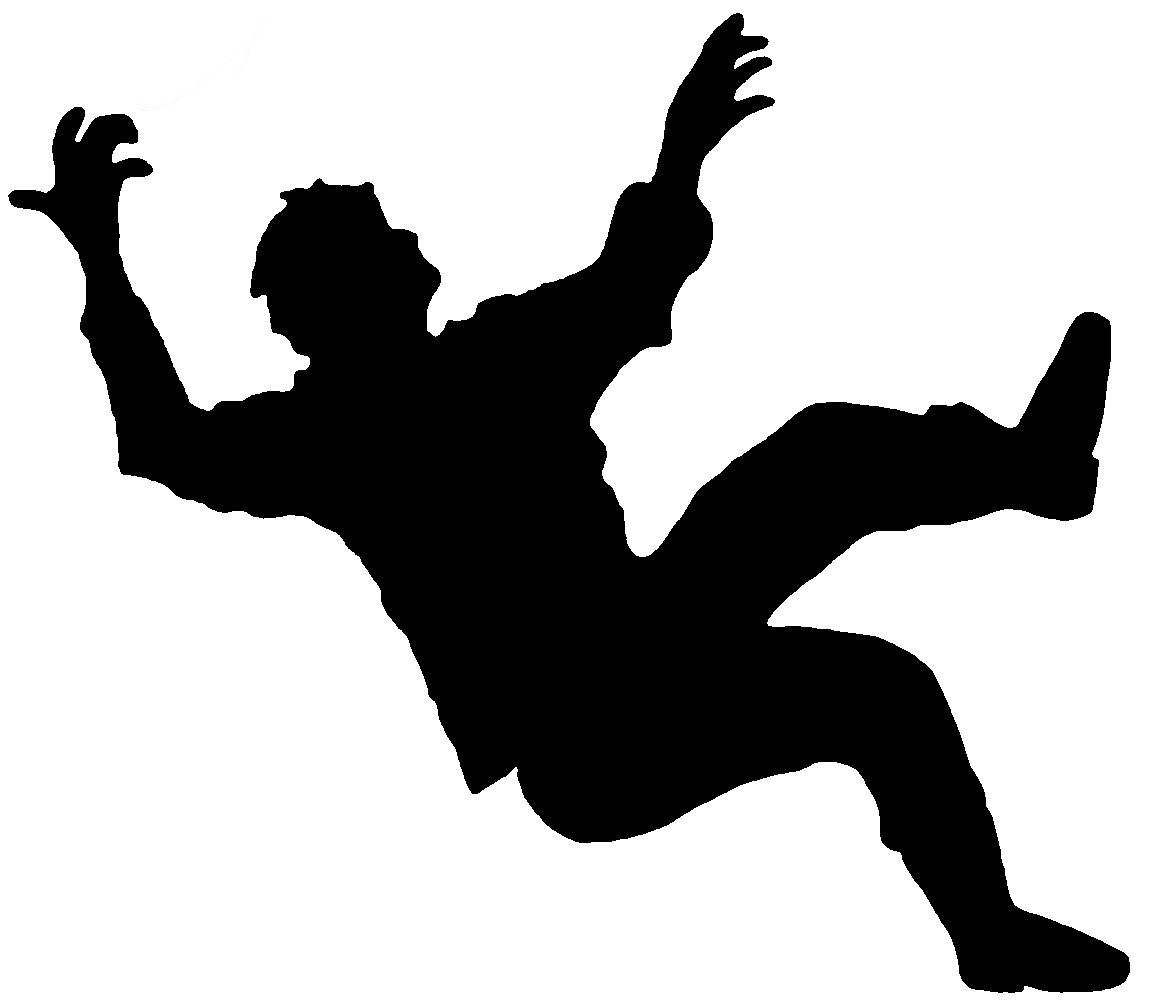
Last night I took a major tumble in the parking lot of one of my favorite grocery stores. I’ll set the stage: First of all, it was a winter’s dark, around 5:30 p.m., and the parking lot was poorly lit. This last fact is ironic, since the lot is owned by the high-brow lighting store next to the grocery store. Secondly, the pavement in the lot is uneven, something I had noticed in the past, but not quite in the same visceral way as I did last night. So what happened? Pretty simple. My cart, full of bags of groceries, got caught in a depression in the pavement – basically a two inch hole that is one foot wide – and keeled over. Since I was pushing the cart, I went with it. Now here’s where my mind gets obsessive, as I try to envision the physics of a shopping cart falling over. Where does it land? And which contact points on my body are evidence of its motion? In that split second or seconds, as I went forward, my mind registered an “oh no”, until the final hit when my nose slammed into a metal bar on the cart. I still cannot figure out which bar came into contact with my nose, although I also realize that there truly is no point in knowing.

Alone in the parking lot, I stood up and disentangled from the various metal pieces of the cart and walked away, searching for some help. For anyone who has been in an accident, you know that our bodies go into shock, adrenaline creating the capacity to function, to seek out safety or help. I yelled to a woman who looked at me in horror and she asked me if I wanted her to call an ambulance. Sure, I said. Then I ambled back towards the store and was met by another woman, who said she was a nurse and sat me down by the side of the road. Other people began to gather, and I realized that I was bleeding a lot. I was oblivious to how I looked, but judging by their responses, it looked bad. Someone got me tissues, and within five or so minutes, the fire department was there, and I was surrounded by around six burly guys, until a moment later, when a policeman broke through the line of firefighters and began asking me questions. “What’s your name, your address, your phone number? Did you lose consciousness at any time? Did you hit your head on the ground, or just the shopping cart? Is there anyone you need to call?” I was mighty pleased that I could answer his questions and that my mind was functioning.
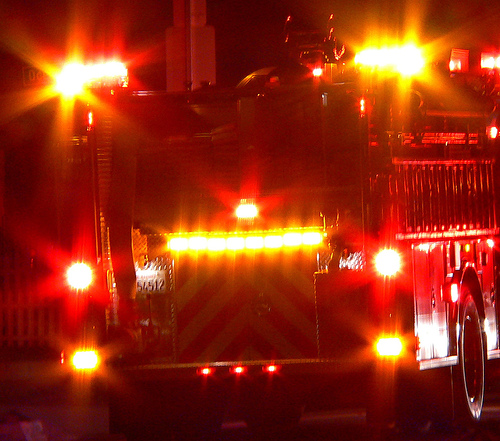
Meanwhile, the fire truck and police car lights were swirling, as I sat quietly with my new friend, this anonymous nurse who sat by my side, a constant source of support. Somewhere in the midst of the chaos, a couple of employees from the store joined us, and left. Another shopper came up to me to say he had the very same accident a few moments before. I can’t remember if I asked him if he was okay. Oddly enough, I appreciated that I wasn’t alone. The ambulance arrived, and two EMT workers began to question me. “Did I want to get in the ambulance or drive myself to the hospital?” I couldn’t fathom driving at that point. “Was I sure?” YES, I was sure. I kept trying to reach my husband, whose phone was out-of-reach, but finally got hold of my daughter as I was getting into the ambulance, and she joined the action from afar. After I hung up with her, the EMT worker, the only dour person I encountered through this “adventure”, told me that I shouldn’t swear when I get into the emergency room, or they wouldn’t treat me as quickly. What? I wasn’t even aware I was swearing, but then I can imagine that I said a few choice words when I talked to my daughter, and then my husband. Isn’t swearing the norm when someone has been in an accident? What odd advice…
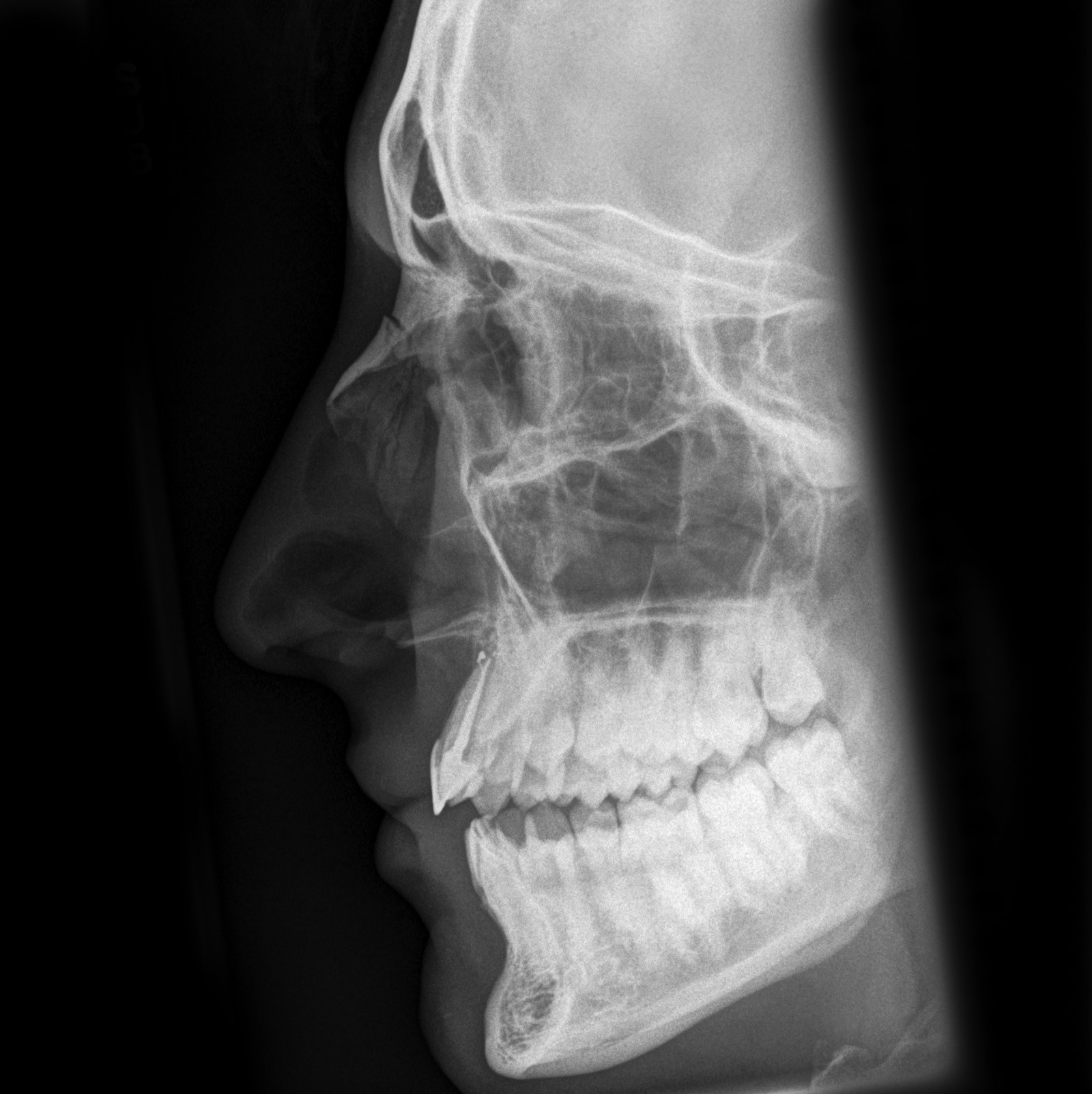
At the emergency room, things moved quickly, then slowly, then quickly. A practitioner examined me, my husband arrived, I got x-rays for various body parts, and the conclusion was that I possibly broke my nose. Not surprisingly, a few people at the hospital asked me if I “feel safe”; code for, “are you a victim of domestic violence?” I’m glad that the awareness of these issues has translated to policy and hospital practice. And truthfully, I do look like someone punched me in the face. One day later, and the grocery store personnel are being kind and responsible. They have reported both accidents to their corporate office, and expressed tremendous regret to me. Apparently some workers arrived later last night to fill the hole where two of us tripped and fell. I am grateful that there are so many people who rise to the occasion and share their kindness in an emergency. And I wish I knew how to contact the nurse, for example, just to say thanks again, although I discovered that we live in the same neighborhood so maybe we’ll run into each other. She may not recognize me though. I’d also like to know how the other guy who fell is doing. Neither of us are spring chickens…
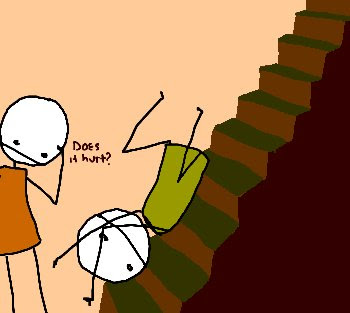
Which brings me to my final point… Falls for older people can be the beginning of the end. Falls are one of the precipitating factors that land older people in nursing homes. I’ve seen the impact of a fall on my own father, and the mother of a friend just died after a nasty fall. Luckily, I’m not in that category of “old” yet, but it does make you think. As an aging woman, I’m still strong and healthy, working full-time, engaged in life and ready for more. I don’t feel like slowing down, as I hear from some of my friends who are inching up to “older”. But how DO you juxtapose moving fast through the world, which I am wont to do, while having an eye towards balancing risk and caution? I still haven’t figured it out. Meanwhile, I will nurse my swollen face and black eye, and reassure anyone who asks that I haven’t been abused, other than by a nasty shopping cart.
by Mindy Fried | Jun 24, 2012 | adventure, connections with people, giving advice, hitchhiking, making choices, memories, parenting, resiliency, sociological imagination

When I was in my early 20s, I spent a summer hitchhiking across America. I was with a good friend, Ingrid, who was ready for an adventure, and off we went with our forty-pound backpacks, starting in New York State and landing a few months later in California. Each driver who picked us up presented another set of wonders, as we listened with fascination to stories about their lives, and shared stories from our journey. One driver who picked us up in Kansas told us all about her research on Sudden Infant Death Syndrome, which required that she travel across three states to visit research sites. A young person anxious to find a career, I was blown away with how cool that sounded, but we were nearly blown away when her tire exploded. Luckily – and luck was what you needed when you were hitchhiking – we were just pulling into a gas station. Unluckily, it was July 4th and the mechanics couldn’t fix the tire until the next day. We slept in the car that night inside a stuffy garage, which was offered to us as a safe haven.

When we were moving up the coast of California, a driver picked us up in a mobile home he was hired to transport. When we hopped in, we discovered two other hitchhikers, and soon found that both of them had just been released from a local prison. They had committed minor economic crimes, or so they said. Another ex-convict joined us along the way, and we all slept that night in the van. But something obviously went awry during the night, because we woke up the next morning to our driver speeding down the road and screaming at high volume to one of the women, “I’ve got a bone to pick with you!”.
Ingrid and I never found out what that bone was, but we mousily asked to be let off at the next rest stop because we said that was our destination. As he drove away, we hid behind a bush, waiting for him to leave, and then went back out on the road with our thumbs ready to find our next ride. He knew we were lying and drove around in a circle, finding us back out on the highway. We did not get back into his mobile home, and survived to tell the tale.

Hitchhiking in America was pretty standard fare for a sub-culture of counter-cultural Americans in the 70s. And two young women going on the road “alone” wasn’t considered outrageous, because we were caught in the tide of a rising second wave of the women’s movement where females could do (almost) anything. While we knew we were dancing with danger, we had youth on our side, and the sense that we could handle whatever we encountered. Later I took my travelling skills to a nearly year-long trip in Europe, and continued to welcome adventure along the way. Sometimes I think my sociological imagination was birthed on these trips.
Now I am a mother whose young adult daughter is travelling – not with her thumb – but with a bike and a girlfriend – through Europe. Unlike my travels which happened sans parental approval or even knowledge, I am in the know about this trip, thanks to a very different kind of parental-child relationship in this 21st century, and a smart phone that supports that. I am caught between experiencing vicarious thrills and experiencing terror, because I know that sometimes things can go very right and sometimes they can go very wrong.
They have been biking for over a month, and still, every morning when I wake up and look at the clock, I add six hours, and imagine what my daughter and her friend are up to. Are they on a beautiful, winding country road, biking next to sheep grazing on the side of the road? Or are they on a jagged, narrow road where cars are, at best, only nearly missing them? Have they encountered the kindness of strangers? Or have they experienced “near misses”?
Both of my trips were much less structured than my daughter’s. If I ever feared for my life during my hitchhiking trip across the U.S, it vanished the second we moved on to the next ride. Even when one of our drivers had a bayonette on his dashboard, I felt invincible and maintained my faith in the goodness of people. With my trip to Europe, which I had spent one whole year saving up for, I was part of a sub-culture of young travelers like myself, populating hostels, walking the streets with our oversized backpacks, and finding bargain meals to stretch out funds for as long as possible. My daughter and her friend are more like speedy turtles, carrying minimal clothing, a tent and other supplies on their bodies and bikes, as they follow roads through small villages and towns, and bike along the side of lakes and rivers.
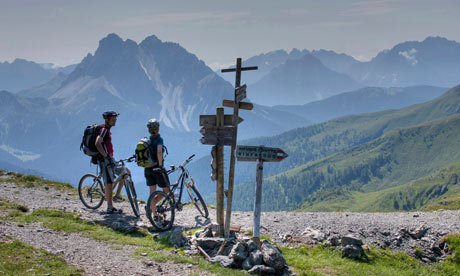
When they get a flat on the side of the road, they are only more fully a part of the scenery, and even a conversation piece for the locals. They are couch-surfing, taking advantage of a miraculous network of people who offer their homes to strangers, supported by an on-line forum where people post their availability and travelers contact them. Former couch-surfers can review their experience so that prospective ones can evaluate their options. Couch surfers even evaluate the travelers too. My daughter told me that after they left their first couch surf home, their host posted that she and her friend were “like sisters and made me smile the whole time of their visit”. For the most part, life for them has been pretty darn good, even great.
Unlike with my trip, where I didn’t talk to my parents at all, my daughter and I talk every few days, thanks to Skype, and when there’s a problem, we talk more than once a day. Forty years ago, I didn’t want to talk to my parents, and maybe because it wasn’t an option, I didn’t miss it one iota. Now I can’t imagine being on my parents’ end of things, not knowing where I was or what I was doing for many months at a time. I am relieved that I can check in with my daughter, and that she has a blog page that narrates her travels with glorious pictures! I doubt that I did more than send my parents a few postcards. At the same time, just because I can stay in touch, the challenge is to not hover, because the reality is that if there is a problem, there is very little I can do from thousands of miles away, other than listen and maybe help them solve it themselves.
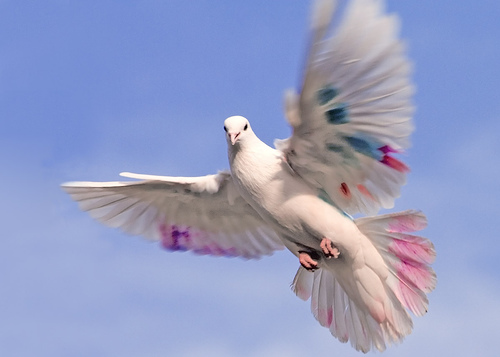
As our children grow up, I “get” that we need to let go, to allow them to spread their wings and learn from experiences, both good and bad. But it’s a scary world, and sometimes I’m just frightened. I’m not naïve about the potential dangers out there, but at the same time, for two young women to explore the world – especially from the vantage point of a bicycle – it is just incredible. Some friends have told me how cool I am to “let her go” on the trip; others tell me they would never have approved a trip like this. But I did. (Did I really have a choice?) And in good part, I did because my parents didn’t stop me from exploring, even though they had no idea what they should have protected me from.
I imagine that for the next few weeks – the amount of time remaining in this trip – I will calculate the time zone differences and imagine where they are in their journey. I will control the amount of contact I initiate, but will steadily follow their blog and Facebook posts. I know that the life lessons gleaned from this challenge will be more potent without mommy. And I will continue to be caught in this odd place between vicarious pleasure and terror.
by Mindy Fried | Feb 15, 2012 | blacklisted, education, House Un-American Activities Committee, HUAC, organizing, prejudice, protest, resiliency, social justice

I was on the treadmill at the gym the other day, frantically trying to undo a day of sitting and staring at my computer, when a casual “gym friend” joined me on an adjacent treadmill. She noticed that I hadn’t been there lately, and wanted to know why. I don’t know her well and could have manufactured some story, but she had always been so warm and friendly, so I decided to tell her the truth, that my 97-year-old dad had just passed away. Her response was immediate and kind, as she empathized with how hard it is to lose a parent. Then she looked up to the ceiling of the gym, and as I followed her gaze, wondering what had stolen her attention, she said in a reassuring voice that he was in heaven now, and then looked back at me with a smile. Not knowing how to respond, I smiled wanly and increased the incline on the treadmill. I wish I believed that he was in heaven and as my partner says, I hope to be happily surprised…

She then asked about the funeral, and I explained that we had it right away because I’m Jewish and that’s what we do… Apparently, distracted by the realization that I was a Jew, she then said that she had many arguments with her Catholic friends who believed that “the Jews killed Christ.” (Wait a minute – where did that lovely empathy go?!) Just as I was thinking about an exit strategy, she came back to earth and said, “It’s crazy that people of all faiths don’t get along.” And as I was mentally excusing her for that detour, she added, “except for the Muslims”. Again, I was hooked, and as I looked at her, I know I must have appeared surprised because she looked back at me with a slightly uncomfortable smile. And then went on to say that she worried that Muslims – presumably all Muslims – were terrorists. Wasn’t it time for me to leave the cardio area and work on my abs or something? But no, I couldn’t leave now, as this was a “teachable moment.”
I said that the media would like us to believe that all Muslims are terrorists, but most Muslims are peaceful people. And she asked me, didn’t I think that the “Koran incites Muslims to commit terrorist acts?” I replied with certainty, with whatever knowledge I have accumulated since 9/11, that that was untrue.
This really bugged me, a kind-hearted, well-meaning person swallowing Fox News whole. And it really upset me that the media is so compelling that good people can believe such nonsense.
I learned the hard way from my father not to run away from difficult conversations and to stand up for my beliefs. In the 1950s, and again in the 1960s, he was called before the Senate House of Un-American Activities (HUAC) to answer the now-infamous question, “Are you now or have you ever been a member of the Communist Party (CP) of the United States?”. The first time he was subpoenaed before the committee, he challenged its legality. And the second time, he used the first amendment, declaring his right to freedom of speech. As a result of the first committee hearing, he was “blacklisted” from work in the U.S., and ultimately sold life insurance for 15 years through a Canadian firm. He also became a prolific playwright, writing about his experiences within the labor movement in attempt to give voice to working people.

It was not until I was well into my 30s that my father admitted to me that he had been a member of the CP, but had wanted to protect me in case the FBI approached me with that question. That might seem like crazy-thinking, but the FBI actually did follow my father – and consequently, our family – for half a decade, employing agents to observe meetings where my father spoke, reviewing documents he wrote, including plays and memoirs, and even observing the fall-out we experienced in our family, as a result of being persecuted by the government.
When I left for college, my father warned me that I might be approached by an FBI agent, asking about his political activities. At the time, that seemed ridiculous, the product of narcissistic, paranoid thinking. But in my junior year, a guy from the Dance Club – in which I was very active – began asking me questions about my dad. Through some research, I discovered that he had been working out in California, trying to sabotage the Cesar Chavez grape boycott. I realized that maybe my father’s paranoia wasn’t so crazy after all. Using the Freedom of Information Act, my father ultimately received roughly 5,000 pages of FBI notes, with many of the words redacted (meaning crossed-out!), supposedly to “protect” the identity of the agent who was following him. I spent hours pouring through these files a number of years ago, and was stunned to read that the FBI knew that my sister and I were being ostracized by our so-called friends because of my father’s political beliefs, and that my mother lost many dear friends and family members to the fears they had about being associated with “a Communist family”. You can read more about this in Colin Dabkowski’s article in the Buffalo News:http://www.buffalonews.com/spotlight/article727714.ece
After my mother died, my father told me another reason why he left the Communist Party. He didn’t want that admission to have negative repercussions on his CP colleagues and friends. He was a working class Jewish man who had strong convictions and was loyal to his friends, risking a lot to stay true to them. He wasn’t trying to overthrow the government, although he was challenging an economic system that, even more so today, creates haves and have-nots. He was simply a very effective labor organizer who mobilized workers around issues of wages and benefits and fair treatment on the job. In doing this work, he was simply executing his first amendment rights to speak out about his beliefs. I believe that the world was a better place because of people like him.
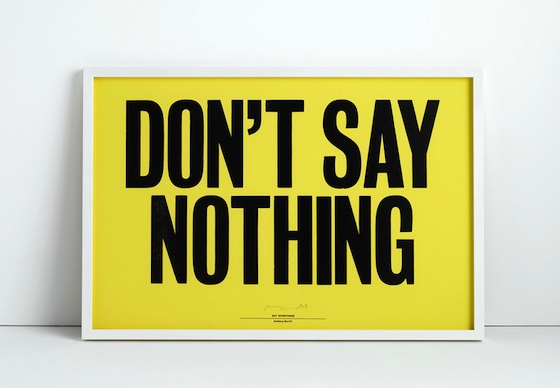
So what to say to my friend at the gym, who seems to have drunk the kool-aid of misinformation in the right-wing media? What to say to many of my fellow Americans who are now stumped about whether to support a wealthy businessman for President whose personal and political interests are intertwined or an evangelical politician who would happily turn our country into the United Christian States?
There are many ways to fight disinformation and work for a better, more equitable world, through organizing, writing, teaching, and just speaking to friends, colleagues and acquaintances. And we must not be afraid to do so.

 GAYLE: Mindy Fried, your new book Caring for Red tells a story of you and your sister taking care of your 97-old father in the last year of his life in an assisted living facility. Before we talk about your experience caring for your dad, Manny, tell me a little about him. Who was this colorful character? After all, he earned the nickname “Red.” Sounds fiery to me!
GAYLE: Mindy Fried, your new book Caring for Red tells a story of you and your sister taking care of your 97-old father in the last year of his life in an assisted living facility. Before we talk about your experience caring for your dad, Manny, tell me a little about him. Who was this colorful character? After all, he earned the nickname “Red.” Sounds fiery to me!






